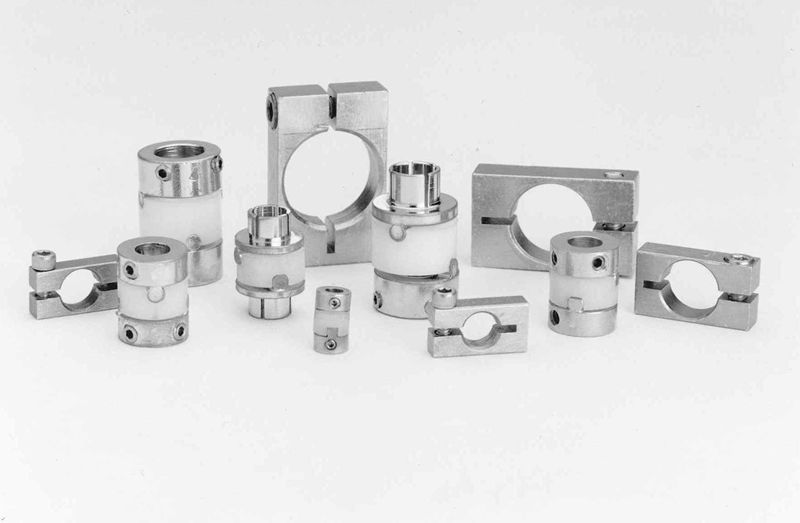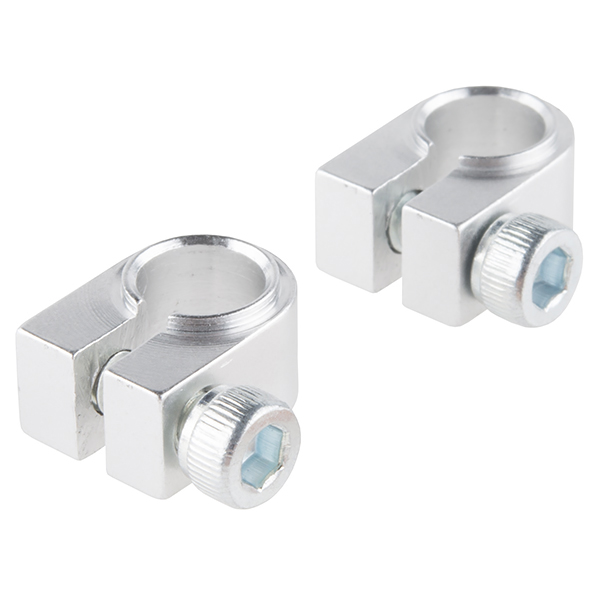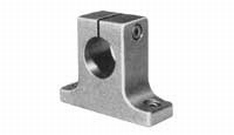Product Description
Set screw Shaft Collar, CZPT Shaft Collar, Nylon Shaft Collar, Aluminiu Shaft Collar, Single Split Shaft Collar, Double Split Shaft Collar, Shaft Coupling, Shaft Mounting Collar
Shaft collars are the most effective when used on a shaft made of a material which is softer than the set screw.
Collar Material: Steel, Stainless Steel, Brass, Aluminum, etc
Collar Finish: Zinc, Nickel, Black, Plain, etcCollar
Inner Diameter: CustomCollar
Outer Diameter: CustomCollar
Width: CustomScrew
Length: CustomScrew
Material: SteelScrew
Size: CustomScrew
Type: Socket Set Screw
Type: Solid Clamping Collar
/* March 10, 2571 17:59:20 */!function(){function s(e,r){var a,o={};try{e&&e.split(“,”).forEach(function(e,t){e&&(a=e.match(/(.*?):(.*)$/))&&1
| Application: | Machinery Accessory |
|---|---|
| Standard: | GB |
| Surface Treatment: | Anodizing |
| Production Type: | Mass Production |
| Machining Method: | CNC Machining |
| Material: | Nylon, Steel, Alloy, Aluminum |

Can I purchase locking collars with specific features suitable for use in conveyor systems?
Yes, you can purchase locking collars with specific features that are suitable for use in conveyor systems. Conveyor systems often require specialized locking collars to ensure secure and reliable shaft attachment, accommodate the unique demands of conveyor applications, and optimize overall system performance. Here are some specific features to consider when purchasing locking collars for conveyor systems:
- Anti-Slip Design:
- High Load Capacity:
- Corrosion Resistance:
- Easy Installation and Adjustment:
- Shaft Protection:
- Alignment and Positioning:
- Industry Standards and Compatibility:
- Manufacturer Support and Expertise:
Look for locking collars that have anti-slip features to prevent unintended movement or slippage of the collar on the conveyor shaft. These features can include serrations, knurls, or specialized surface treatments that enhance the grip between the locking collar and the shaft, providing a secure and reliable connection.
Conveyor systems often handle heavy loads, so it’s important to choose locking collars with a high load capacity. Look for collars that are designed to withstand the specific loads and forces encountered in conveyor applications. Consider factors such as the material strength, geometry, and construction of the locking collar to ensure it can handle the anticipated load requirements.
Depending on the environment in which the conveyor system operates, corrosion resistance may be crucial. Look for locking collars made from materials that offer excellent corrosion resistance, such as stainless steel or corrosion-resistant coatings. This helps to protect the collars from degradation due to exposure to moisture, chemicals, or other corrosive substances.
Consider locking collars that offer ease of installation and adjustment features. Conveyor systems often require frequent maintenance, adjustments, or replacements, so having locking collars that are designed for quick and convenient installation and adjustment can save time and effort. Look for collars with user-friendly designs, such as tool-free locking mechanisms or integrated adjustment features.
Locking collars that provide shaft protection features can help prevent damage or wear to the conveyor shaft. Look for collars that have smooth internal surfaces, chamfered edges, or materials that minimize friction and abrasion on the shaft. This helps to extend the lifespan of both the locking collar and the shaft, reducing maintenance requirements.
In conveyor systems, precise alignment and positioning of components are crucial for smooth operation. Consider locking collars that offer alignment or positioning features, such as set screws, keyways, or specialized designs that facilitate accurate placement of the collar on the shaft. These features can help maintain proper alignment of conveyor components and minimize the risk of misalignment-related issues.
Ensure that the locking collars you purchase comply with relevant industry standards and specifications. This ensures compatibility and interchangeability with other components of the conveyor system. Look for locking collars that meet recognized standards to ensure proper integration and reliable performance.
Consider purchasing locking collars from manufacturers or suppliers who specialize in conveyor systems or mechanical power transmission components. These manufacturers often have in-depth knowledge and expertise in designing locking collars specifically for conveyor applications. They can provide guidance, technical support, and customized solutions to meet your specific requirements.
When purchasing locking collars for conveyor systems, it’s important to consider the specific needs and requirements of your application. Consult with manufacturers, suppliers, or industry experts to ensure that the locking collars you select are suitable for your conveyor system and will deliver optimal performance and reliability.
By considering these specific features and factors, you can purchase locking collars that are tailored to the unique demands of conveyor systems, ultimately enhancing the efficiency, durability, and overall performance of your conveyor application.

Where can I purchase locking collars with specific certifications for certain industrial standards?
If you are looking to purchase locking collars with specific certifications for certain industrial standards, there are several options available to you. Here are some avenues to explore:
- Specialized Industrial Suppliers:
- Distributors and Manufacturers:
- Trade Shows and Exhibitions:
- Online Marketplaces:
- Professional Networks and Associations:
- Consulting Engineers or Procurement Specialists:
Specialized industrial suppliers that cater to specific industries often carry locking collars with certifications for relevant standards. These suppliers typically have a wide range of products designed for specific applications and can provide guidance on selecting the appropriate locking collars with the desired certifications. Examples of such suppliers include those focusing on the automotive, aerospace, or medical industries.
Reach out to distributors or manufacturers of locking collars directly. Many manufacturers offer locking collars with certifications for specific industrial standards. They can provide information on the certifications their products comply with and help you choose the right locking collars for your requirements. Some manufacturers may also have online catalogs or websites where you can browse their product offerings and certifications.
Attending trade shows and exhibitions related to your specific industry can be a valuable opportunity to connect with suppliers and manufacturers of locking collars. These events often feature exhibitors showcasing their products and certifications. You can engage with them directly, discuss your requirements, and explore available options. Trade shows provide a platform to gather information, compare products, and make informed purchasing decisions.
Online marketplaces that specialize in industrial products and components can be a convenient source for purchasing locking collars with specific certifications. Platforms like Alibaba, Thomasnet, or GlobalSpec offer a wide range of industrial supplies from various suppliers. You can search for locking collars with the desired certifications, compare prices, read customer reviews, and make purchases online.
Engaging with professional networks and industry associations can provide valuable insights and connections to suppliers who offer locking collars with specific certifications. Participate in industry forums, conferences, or online communities where professionals discuss relevant topics. Seek recommendations from industry experts or peers who have experience with locking collars and certifications for specific industrial standards.
If you require specialized assistance in sourcing locking collars with specific certifications, consider consulting with engineers or procurement specialists who have expertise in your industry. These professionals can provide guidance, recommend suppliers, and help navigate the procurement process to ensure compliance with industrial standards.
When purchasing locking collars with specific certifications, it is essential to verify the authenticity and validity of the certifications provided by the suppliers. Request relevant documentation, such as test reports or compliance certificates, to ensure the locking collars meet the required standards. Additionally, consider factors such as product quality, customer support, and delivery options when selecting a supplier or manufacturer.
Ultimately, the availability of locking collars with specific certifications may vary depending on your industry and the particular standards you require. Conduct thorough research, leverage available resources, and engage with trusted suppliers or experts to find the locking collars that meet your specific needs.

How do locking collars compare to other types of shaft collars, such as set-screw collars or clamp collars?
When comparing locking collars to other types of shaft collars, such as set-screw collars or clamp collars, there are several factors to consider:
- Installation Method:
- Security and Holding Power:
- Shaft Protection:
- Adjustability:
- Application Suitability:
- Complexity and Cost:
Locking collars typically use mechanisms like split designs, threads, ratcheting, or adhesive lining to secure them to the shaft. In contrast, set-screw collars rely on a screw that is tightened against the shaft, while clamp collars utilize a band or clamp that is tightened around the shaft.
Locking collars are often designed to provide high levels of security and holding power. The various mechanisms they employ, such as the split design, threading, or ratcheting, offer a more secure grip on the shaft, minimizing the risk of slippage or loosening under torque or vibration. Set-screw collars and clamp collars, while effective in many applications, may be more prone to slippage or require periodic adjustment to maintain their grip.
Locking collars, particularly those with split designs or adhesive lining, can provide better protection for the shaft. They distribute the clamping force more evenly, reducing the risk of damage or deformation to the shaft. Set-screw collars, if not properly installed or tightened, can potentially create localized stress points or indentations on the shaft surface. Clamp collars, while generally providing good protection, may exert more localized pressure due to their band or clamp design.
Set-screw collars offer some adjustability as the set screw can be loosened and repositioned on the shaft. This allows for fine-tuning or repositioning of the collar. Clamp collars often provide a degree of adjustability as well, as the clamp or band can be loosened and repositioned. Locking collars, depending on their specific design, may offer limited or no adjustability once fully tightened.
The choice between locking collars, set-screw collars, or clamp collars depends on the specific application requirements. Locking collars are often preferred in high-torque or high-vibration applications where secure and reliable shaft connections are crucial. Set-screw collars and clamp collars are commonly used in applications with lower torque or where occasional adjustment or removal is necessary.
Locking collars, with their various mechanisms and designs, can be more complex in construction compared to set-screw collars or clamp collars. This complexity may result in higher manufacturing costs. Set-screw collars and clamp collars, being simpler in design, are often more cost-effective options.
Ultimately, the choice between locking collars, set-screw collars, or clamp collars depends on the specific needs of the application. Consider factors such as torque requirements, vibration levels, ease of installation, adjustability, shaft protection, and budget constraints to determine the most suitable collar type for your particular application.


editor by CX 2023-12-18
